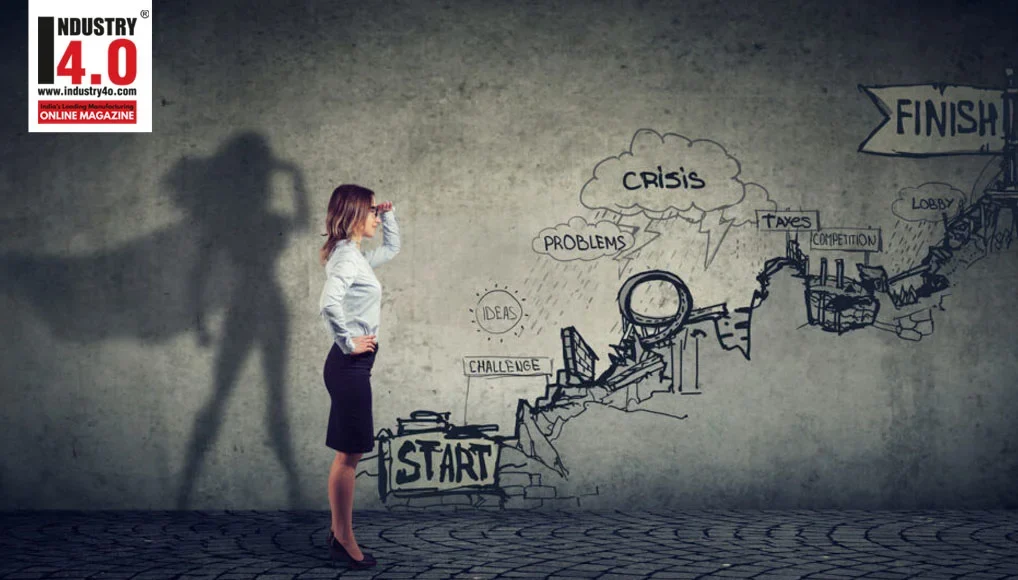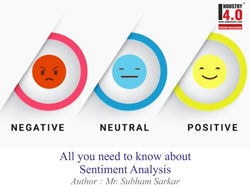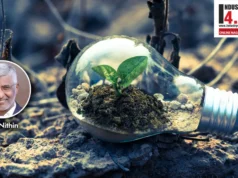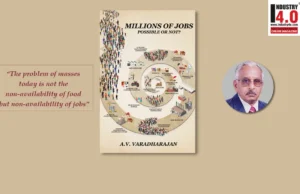The two biggest disruptions of our recent times have undoubtedly been COVID-19 and the Russia-Ukraine War. Both are real-life examples straight out of the “Force Majeure” clause in business contracts (epidemic/pandemic and war, respectively). They will be etched in our memories for a long long time and will shape our future in a big way.
COVID-19 had taken the wind out of the sail for firms globally across sectors and sizes. This was an uncertainty of gigantic proportions that no one had anticipated and hence were unprepared for. The governments world over struggled to find their own ways of managing COVID-19. Micro-Small and -Medium Enterprises (MSMEs) were disrupted the most, with many such firms across sectors shutting down especially in many Least Developed Countries (LDCs) and even in Emerging Economies like India.

Over the past two and half years of managing the virus waves/variants and vaccinations, most firms have now more or less found a way to live with COVID, while conducting their business operations. Technology has been a key enabler with firms experimenting and working with flexible work options like Work from Home (WFH), Hybrid Model, etc.  Now with the dust arising out from COVID yet to settle down anytime soon (with more virus variants/mutations expected in the near-to-medium term future), comes the double whammy of the Russia-Ukraine War! And as an immediate aftermath of the war, came the over-arching range of sanctions on Russia from Western countries and their alliance partners worldwide.
Now with the dust arising out from COVID yet to settle down anytime soon (with more virus variants/mutations expected in the near-to-medium term future), comes the double whammy of the Russia-Ukraine War! And as an immediate aftermath of the war, came the over-arching range of sanctions on Russia from Western countries and their alliance partners worldwide.
Both Russia and Ukraine, apart from being large in size (Russia being world’s largest country and Ukraine being Europe’s largest country), are significant forces in terms of their respective military power and also economic clout. Specific to world economy, apart from military equipment, both countries are leading global suppliers of wheat, barley, corn, iron & steel, chemicals, mining products, amongst others. Apart from these, Russia is also a key oil & gas player, being a leading Oil Producing and Exporting Countries (OPEC) member and also the largest supplier of oil & gas to Europe (catering to almost 40% of gas needs of countries like Germany & Netherlands).  The immediate fallout of the war has on one side been the disruption of Ukraine’s export capabilities, driven by destruction of their factories, ports, airports, roads, logistics facilities, and above all manpower who are almost all engaged in fighting Russia. Similarly, owing to the sanctions slapped on Russia (Russian politicians, UHNIs/oligarchs, banks, firms, transport sector, etc), Russia’s export capabilities have been significantly curtailed.
The immediate fallout of the war has on one side been the disruption of Ukraine’s export capabilities, driven by destruction of their factories, ports, airports, roads, logistics facilities, and above all manpower who are almost all engaged in fighting Russia. Similarly, owing to the sanctions slapped on Russia (Russian politicians, UHNIs/oligarchs, banks, firms, transport sector, etc), Russia’s export capabilities have been significantly curtailed.
While no one could have predicted that the war will really happen and when, however the war clouds have been hovering over this region since quite a few years. Unlike COVID, which came unannounced and without any significant warning and was thus aptly named the “novel” corona virus, there were however tell-tale geo-political signals and also warnings from a few global analysts that the Russia-Ukraine decades’ long spat over Crimea and Donbas region could spill over into a full-fledged war.
What is the impact on firms globally induced by this disruption of geo-politics (war and sanctions)?
Answer would be, almost all-pervasive like stock markets crash / volatility, banking and currency markets fluctuations, oil prices shooting through the roof, global commodities disruption of key items like food grains (wheat, corn, etc.) & industrial products (iron, steel, mining, chemicals, etc.), soaring inflation levels, travel-tourism-hospitality sector disruption, education sector upheaval (vivid images of Indian students being evacuated from Ukraine), shutting down of operations of various MNC firms in Russia, amongst many others.
Even the IT sector is not spared. An example of how deep emotions are running is that of Rishi Sunak (UK’s Chancellor of the Exchequer, equivalent of Finance / Treasury Minister) was questioned about his links with Infosys through his wife Akshata Murthy, daughter of Infosys’ Co-Founder Narayana Murthy, that Infosys had business links in Russia. It forced Infosys to come out and announce that they only have a few support staff in Russia.  On the other side of this however there are opportunities. For OPEC countries, with Russian oil under sanctions, they can jack up the prices of oil & gas at their will, by not increasing production. For US, apart from the recent gas deal signed with EU (to wean them away from Russian dependence), there are opportunities for their defence sector to shore up arms exports to Ukraine and NATO countries in Europe. For India, opportunity is to buy Russian oil at cheap rates, as Russia is sanctioned by Western countries and Indian oil firms like IOC, GAIL, BPCL, HPCL are being nudged by the government to leverage this opportunity. On the supply side, there is the big opportunity for India to export wheat beyond its traditional markets. Here again Indian govt is encouraging wheat producers and exporters to scale up and grab this opportunity to fill in the gap in the world market of both Russian and Ukrainian wheat. This will also be a boon for the government as farmers income will rise.
On the other side of this however there are opportunities. For OPEC countries, with Russian oil under sanctions, they can jack up the prices of oil & gas at their will, by not increasing production. For US, apart from the recent gas deal signed with EU (to wean them away from Russian dependence), there are opportunities for their defence sector to shore up arms exports to Ukraine and NATO countries in Europe. For India, opportunity is to buy Russian oil at cheap rates, as Russia is sanctioned by Western countries and Indian oil firms like IOC, GAIL, BPCL, HPCL are being nudged by the government to leverage this opportunity. On the supply side, there is the big opportunity for India to export wheat beyond its traditional markets. Here again Indian govt is encouraging wheat producers and exporters to scale up and grab this opportunity to fill in the gap in the world market of both Russian and Ukrainian wheat. This will also be a boon for the government as farmers income will rise.
How can the private sector firms manage such war and sanctions-driven disruption?
One way is just being reactive, while scouting for a way out or looking for opportunities! Cost of such a strategy can however be severe, if the specifics of the war (countries, suppliers, products/services, customers, shipping routes, etc) directly impact these firms adversely.
 The recommended ‘no-brainer” way to is to bring in strategic thinking in their business strategies and operations, especially with regards to supply chain resilience and stable export markets.
The recommended ‘no-brainer” way to is to bring in strategic thinking in their business strategies and operations, especially with regards to supply chain resilience and stable export markets.
Some of the proactive, forward-thinking steps that can be taken by these firms are as below (but not in any specific order) :
1) Mainstreaming of geo-political thinking and external advisory in corporate boardrooms
2) Contingency planning to formulate responses for an array of adverse events/scenarios
3) Leveraging financial strategies like working capital management, cost optimisation, currency hedging, etc
4) Periodic re-validations of upstream (customer) and downstream (supplier) contracts, and building in contingency clauses
5) Establishing alternate supply chains, shipping routes and payment (currency) mechanisms
6) Impact analysis &identifying workarounds during sanctions regimes
7) Coordination mechanisms and forums with industry bodies, governments and local authorities
8) Collaboration with competitors (!) to present unified industry/sector stands
9) Think-tank based approach to identify opportunities in crises and reviewing investment and geo-expansion strategies over time horizons (near-term, mid-term and long-term)
10) Forming a crack team comprising of Advisory Board, CEO, COO, CFO, Chief Strategy Officer, Legal Head, Supply Chain Head, Sales Head, etc. – to formulate strategies
11) Forming Quick Response Teams (QRTs) comprising of operational leaders – to implement these strategies
12) Effective, proactive communications and feedback/inputs loop with various stakeholders – employees, investors, advisors, lenders, customers, suppliers, partners, regulatory authorities, etc.
In conclusion,
Russia and Ukraine while being significant economies, they are surely not economic superpowers. However, in the event of a war between the superpower economies of today (viz, USA and China, with European Union expected to back USA), one can shudder to think of the impact on the global economy! Firms should adopt a strategy of “Hope for the Best and Prepare for the Worst”.
 It’s not a hypothetical scenario, with Xi Jinping and his Politburo comrades of China closely watching and learning from the 3rd parties’ war (Putin and Zelensky) and how the USA and its allies in Europe, Canada, Australia, Japan, South Korea etc. are reacting. These learnings will be factored in their eventual decision on the Taiwan question, with the choppy South China seas and Indo-Pacific as the potential future theatres of war between the two incumbent superpowers of current times (a declining US and a resurgent China). Apart from such an event potentially becoming the dreaded World War III with the accompanying global catastrophe, strictly for business firms this can become an existential question. Can they prepare themselves for such geo-politics driven geo-economic fallout?
It’s not a hypothetical scenario, with Xi Jinping and his Politburo comrades of China closely watching and learning from the 3rd parties’ war (Putin and Zelensky) and how the USA and its allies in Europe, Canada, Australia, Japan, South Korea etc. are reacting. These learnings will be factored in their eventual decision on the Taiwan question, with the choppy South China seas and Indo-Pacific as the potential future theatres of war between the two incumbent superpowers of current times (a declining US and a resurgent China). Apart from such an event potentially becoming the dreaded World War III with the accompanying global catastrophe, strictly for business firms this can become an existential question. Can they prepare themselves for such geo-politics driven geo-economic fallout?
About the Author:

Mr. Subham Sarkar
Chief Strategy Officer

Netlabs Global IT Services Pvt. Ltd.
He can be contacted at:
Mobile : +91 81476 52280, +91 97404 44009
E-mail : [email protected] / [email protected]
LinkedIn : https://in.linkedin.com/in/subham-sarkar-519b7114
Netlabs Global IT Services – Social Media Links:
LinkedIn : https://www.linkedin.com/company/netlabsglobal
Twitter : https://twitter.com/netlabsglobal
Website : http://netlabsglobal.com
Disclaimer: The contents of this article are purely based on the personal opinions of the author and not in the official capacity of Netlabs Global.
Also read Mr. Subham Sarkar other Articles:












